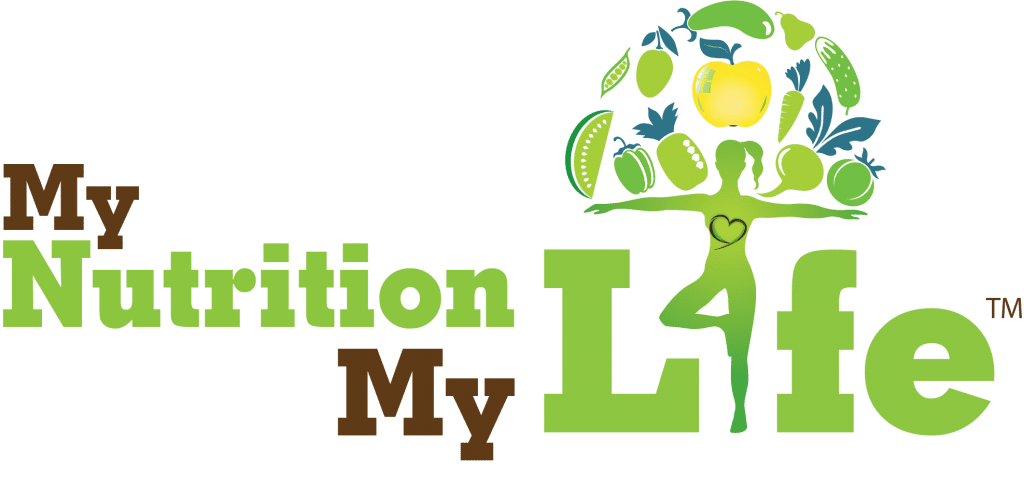Why Do We Need Fat?
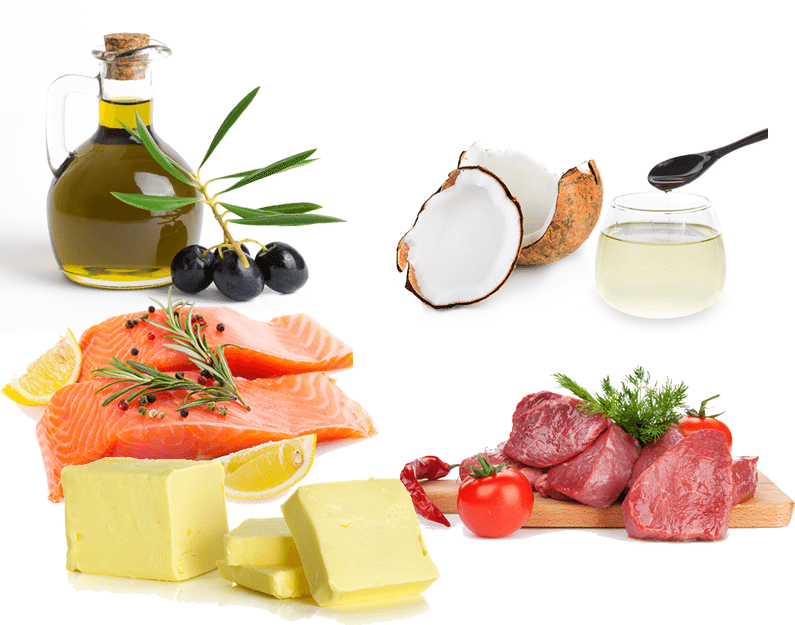 Not all fats are bad, you just need to know the difference between fats you need, and fats you don’t need. Here are some of the top reasons why you need fats:
Not all fats are bad, you just need to know the difference between fats you need, and fats you don’t need. Here are some of the top reasons why you need fats:
- Fat is a source of energy
- Fats help control our appetite
- Fats help build healthy cells- Fats are a vital part of the membrane that surrounds each cell of the body
- For Proper functioning of nerves and brain
- Fat helps your Immune system
- Fats help in the absorption of Vitamins A, D, E, and K which are are fat-soluble.
- Fats make hormones
- Fat provides healthier skin
- Fat forms a protective cushion for your organs
- Fats can be classified as:
1. Unsaturated fats
2. Saturated fats and
3. Trans fats
There are two types of unsaturated fats
- Polyunsaturated
- Monounsaturated
Monounsaturated fats are found in foods such as olive oil, canola oil, peanuts and peanut oil, most nuts (except walnuts),
and avocados. Sometimes they are also referred to as omega-9 fatty acids. People refer to monounsaturated fat as a “good” fat
because it plays a role in keeping our hearts healthy. Use sparingly since these oils are susceptible to oxidation.
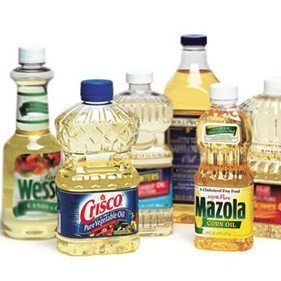 Polyunsaturated fats (omega 3 and omega 6)
Polyunsaturated fats (omega 3 and omega 6)
- Polyunsaturated fats contain the essential fatty acids (EFAs) omega-3 and omega-6.
- The omega-3 fats (alpha-linolenic acid (ALA, DHA, EPA) are found in many varieties of fish and also in some plant foods: flaxseed, walnuts, chia seeds
- The brain is made up of 60 percent fat, the biggest portion of which is an omega-3 fat called docosahexaenoic acid (DHA for short). Your brain needs DHA to spark communication between cells. EPA fatty acid is good for the eyes.
- Omega-6 fatty acids (Linoleic acid) are found in safflower, sunflower, corn, canola,soybean, cottonseed, and sesame oils.
- These fats (omega-3 and omegas-6) are required to make substances called eicosanoids, which are hormone like substances that affect blood pressure, immunity, inflammation, contraction of smooth muscle tissue (such as your heart), and more. It provides the structural components of myelin, the fatty insulating sheath that surrounds each nerve fiber, enabling it to carry messages faster.
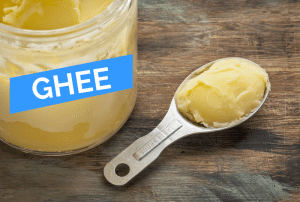 Saturated Fats
Saturated Fats
- Saturated fat is mainly found in animal foods like meat, butter, tallow, ghee, duck fat, bacon fat but a few plant foods are also high in saturated fats, such as coconut oil, avocado and palm kernel oil.
- Saturated fats are necessary for absorption of certain vitamins, calcium uptake, immune function, and cell membrane structure.
- Saturated Fats only mildly elevate Large LDL, a benign subtype of LDL that is not associated with heart disease.
- Eating saturated fats raises blood levels of HDL (the “good”) cholesterol, which should lower your risk of heart disease.
- Saturated fats found in butter and coconut oil (myristic acid and lauric acid) play key roles in immune health.
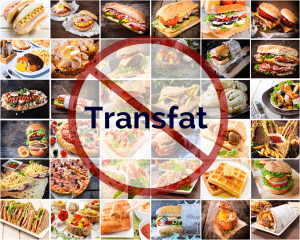 Say “No” to Trans Fats
Say “No” to Trans Fats
Trans fatty acids, more commonly called trans fats, are made by heating liquid vegetable oils in the presence of hydrogen gas and a catalyst, a process called hydrogenation. Transfats can be found in fast food, cookies, doughnut, margerine and other processed foods.
Trans fats are worse for cholesterol levels because they:
- Raise bad LDL and lower good HDL
- Create inflammation, – a reaction related to immunity – which has been implicated in heart disease, stroke, diabetes, and other chronic conditions
- Contribute to insulin resistance
- Can have harmful health effects even in small amounts – for each additional 2 percent of calories from trans fat consumed daily, the risk of coronary heart disease increases by 23 percent.
Eat Fat to Burn Fat
- When people eat less fat, they tend to eat more starch or sugar instead, and this actually increases their levels of dangerous
cholesterol, the small, dense cholesterol that causes heart attacks. - Any excess carbohydrates that the body doesn’t immediately use for energy is converted to fat to be stored for future energy.
- If you are constantly feeding your body quick energy in the form of carbs, it never taps into this stored energy (fat) and fat accumulates.
- Any extra fats consumed at that point are also stored as fat since the body is burning its quick and easy form of fuel from
carbohydrates. In this way, it is much more logical to understand that excess carbohydrates, not excess fats, cause weight gain. - Eating good fat increase the fat-burning hormone adinopectin that enhances your metabolism to burn fats and curb your appetite.
 The Benefits of Medium-Chain Fatty Acids
The Benefits of Medium-Chain Fatty Acids
Coconut oil is about 2/3 medium-chain fatty acids (MCFAs), also called medium-chain triglycerides or MCTs. Coconut oil is nature’s richest source of these healthy MCFA’s. Benefits of MCFA’s are:
- MCFAs are smaller. They permeate cell membranes easily, and do not require special enzymes to be utilized effectively by your
- MCFAs actually help stimulate your body’s metabolism, leading to weight loss.
Coconut oil is rich is lauric and caprylic acid. These power house fatty acids have antifungal, antibacterial and antiviral effects.
Palm oil has carotenoids, a wonderful antioxidant that’s a precursor to vitamin A. This type of oil is 15 times richer in beta-carotene than carrots and is also high in vitamin E
What are the best fats to use for cooking?
Unsaturated fats, especially polyunsaturated fats, contain many double bonds and react with oxygen during high heat cooking; they form toxic byproducts and go rancid. For high-heat cooking, saturated fats like coconut oil, palm oil, butter, ghee are the best choice because they are more stable and don’t react with oxygen as easily.
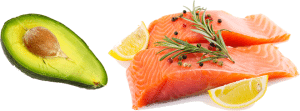 Healthy Fats to focus on:
Healthy Fats to focus on:
- Avocados – add them into smoothies, salads , salad dressings or as snack with some sunflower seeds
- Nuts – walnuts, almonds, pecans, macadamia nuts (high in Vitamin E which is an antioxidant)sprinkle on salads, add to
smoothies, eat them as a snack (1 oz)m use them as crust or fish or meats. - Nut butters like almond butter, sunflower seed butter (add to smoothies, salad dressings, as snack on rice cake or with fruit)
- Seeds – pumpkin, sesame, chia, hemp (high in omega-3) (add to smoothies, sprinkle on salad , add to salad dressings)
- Fatty fish, including sardines, mackerel, herring, and wild salmon that are rich in omega-3 fats. Add to salads , eat them with avocado
- Extra virgin olive oil (cold pressed ) drizzle on salads, use as salads dressings,
drizzle on cooked vegetable - Enjoy grass fed or sustainably raised animal products (I recommend the Environmental Working Group’s Meat Eater’s Guide to eating good quality animal products that are good for you and good for the planet).
- Eat whole eggs – use them for an egg salad, on salads , sauces
- Saturated fat like extra virgin coconut oil, Grass-fed butter , palm oil and Ghee (clarified butter) – for high heat cooking , add to smoothies, salad dressing
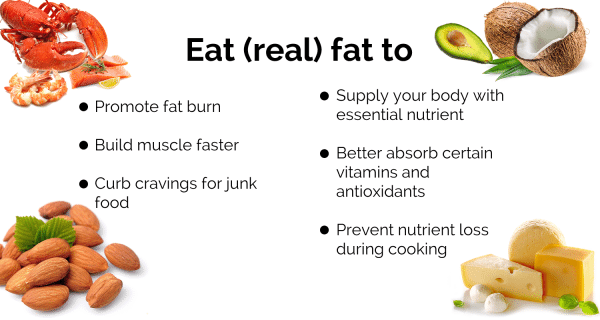 Supplementing
Supplementing
Look for a reputable supplement maker that certifies its products are free of mercury and other contaminants .Choose a
supplement with 500 to 1,000 milligrams of omega-3 fats (a ratio of roughly 300 EPA and 200 DHA is ideal).
If you are vegan, you can use Udos’ oil which is combination of all essential fatty acids( 3,6,9).
